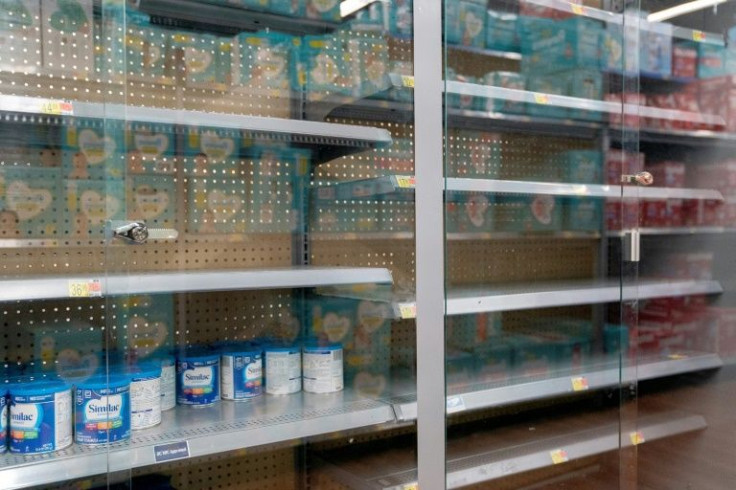Baby Formula Scams Loom As US Manufacturers Warn Of A 10-Week Stall
Warnings about potential scams involving baby formula have raised alarms as manufacturers warn of a potential 10-week-long shortage.
The Better Business Bureau (BBB) released a warning Thursday about the potential for scammers to target vulnerable people -- specifically, expecting or current mothers looking for baby formula amid the shortage. BBB advises not just trusting reviews on advertising selling baby formula. Scammers can artificially leave a lot of positive reviews on a website so people trust it.
Often scammers will not include a location on the website or include a location for a completely unrelated business. This is because the site advertising baby formula has no location, and that is suspicious. Websites run by scammers also often have spelling or other grammatical errors that let consumers know they are untrustworthy. They could also employ language that is inconsistent with words producers usually used to describe a product like baby formula.
BBB also advises that buyers take a picture of the purchase and the website. When scammers see that a buyer finally makes a purchase, they cut off all contact. They also take down the website. Taking a picture will allow for officials to better investigate and find those responsible, and potential compensation.
Paying with a credit card also offers more protection as it is easier to track. BBB also advises caution about emails or online ads for baby formula. By advertising baby formula, scammers can access people's payments and other personal information. That can happen even with just a click on a link.
Scammers will probably increase their targeting of individuals seeking baby formula amid the shortage. Especially amid news that the shortage could last for another 10 weeks. As of the first week of May, 43% of normal supplies of baby formula were out of stock.
The shortage started because of a Food and Drug Administration recall and investigation into Abbott Laboratories baby formulas. Brand names including Similac, Alimentum, and EleCare. The recall and investigation caused an Abbott plant to shut down.
A recall and investigation came amid reports of sickness as well as two infant deaths. Cronobacter sakazakii is the illness that supposedly caused the reported sicknesses and deaths in infants.
However, an investigation found no evidence of such an illness in any of the baby formulas the FDA tested. The FDA only detected one instance of cronobacter sakazakii in a "nonproduct contact area," the FDA said in a statement.
"Ensuring the availability is also a priority for the FDA as they're working around the clock to address any possible shortage," White House press secretary Jen Psaki told reporters Monday.
In a statement Wednesday, Abbott said that the recall "worsened an already existing industry-wide infant formula shortage in the U.S.," and is aware of the stress and concern of parents facing empty shelves.
However, the baby formula maker said that it is addressing the crisis. Abbott is "working to increase supply at our other FDA-registered facilities, including bringing in Similac from our site in Cootehill, Ireland, by air and producing more liquid Similac and Alimentum."
"We also began releasing metabolic formulas that were on hold earlier this month at FDA's request to those who need these unique formulas," the company said in a statement.
Abbott says it could be two weeks for the site to be up and running again. Then it will take another six to eight weeks for its baby formula to appear on shelves again. According to Psaki, there is currently no available nationwide stockpile of baby formula in the event of such a crisis.

© Copyright IBTimes 2024. All rights reserved.






















